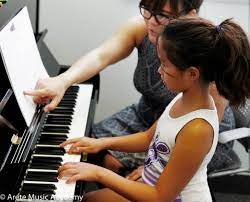These tips will help you see results quickly.
Create an atmosphere
Find the best setup for you. You can choose to focus in a quiet room or in more stimulating surroundings. Be consistent. This will allow you to get into the right mindset when you start practicing.
You will save a lot of time if you keep all the essentials close at hand. If you don’t waste too much time fiddling with technology, technology can be a great aid. You can download apps for free that work as a metronome or a tuner or as a timer.
Warm-up
A warm-up is important for any physical exercise. You don’t have to do the same warm-up every time. Instead, let your mind wander and think about other things. A warm-up is more than just getting your muscles moving. It’s a chance to prepare your body for work. Take the time to assess how you feel, what you’re breathing and why you’re doing this exercise.
Warm-ups don’t have to include 15 minutes of scales. You can try other technical studies or sight-reading. When you’re going to scale, think about the keys of the pieces you are practicing. As a cool-down, you can revisit a piece that you know well and then enjoy it.
Set a goal
It’s not the same as practicing, even if you play all your old music. You will be able to progress faster and more effectively if you have a goal in mind for every practice session. Next, break down each goal into smaller, more focused goals. As you reach each goal, you’ll feel great.
Be real
Our teachers tell us as children that we should not leave it until the next night. It’s something we all have done at one time or another. If there is an intimidating part to practice, it can be easy to forget about it. It is more efficient to practice little by little and gradually chip away at your enemy daily.
It’s about quality, not quantity. You will have more willpower if you practice smarter than you do longer. You will overcome difficult areas more easily if you set small, realistic goals. Also, you won’t feel guilty if you don’t complete everything.
Identify the problem and solve it.
You shouldn’t play the same passage or piece repeatedly, and you shouldn’t ignore a problem area. You need to identify where you’re stumbling or using incorrect fingering. Then, figure out the problem and plan how you will fix it.
Being a musician involves more than just playing the notes
Understanding your instrument’s repertoire, history, and the reasons behind the music is important. If you sing in another language, ensure you have translated the libretto to understand the meaning. Listen to the best music and recordings and analyze what makes them special.
Create your music
Do not be afraid to write on your scores. Some music should be kept in a safe place, but you can photocopy the score and make it as easy as possible to understand. Make a mental note of what you missed. Don’t be afraid of writing in the correct fingering or highlighting dynamics if it’s a regular occurrence.
Register yourself
You can record your practice sessions and listen back to the recordings. This will allow you to spot things you might want to change or do differently. You may even consider recording your practice sessions.
Get in the right mindset.
We all make mistakes. You don’t have to be under pressure to practice if you don’t feel like it. Or you can take a day off and play something you enjoy. We all play because we love the sound and feel of the instrument. It can be easy to become frustrated and lose sight of the fun part.
Reward yourself
Remind yourself of how incredible it is to play an instrument, and then treat yourself after each practice session!

